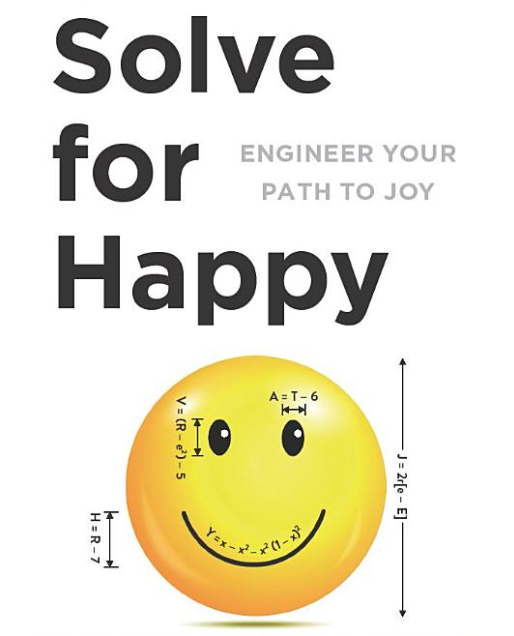Solve for Happy

Summary
In this “powerful personal story woven with a rich analysis of what we all seek” (Sergey Brin, cofounder of Google), Mo Gawdat, Chief Business Officer at Google’s [X], applies his superior logic and problem solving skills to understand how the brain processes joy and sadness—and then he solves for happy.
In 2001 Mo Gawdat realized that despite his incredible success, he was desperately unhappy. A lifelong learner, he attacked the problem as an engineer would: examining all the provable facts and scrupulously applying logic. Eventually, his countless hours of research and science proved successful, and he discovered the equation for permanent happiness.
Thirteen years later, Mo’s algorithm would be put to the ultimate test. After the sudden death of his son, Ali, Mo and his family turned to his equation—and it saved them from despair. In dealing with the horrible loss, Mo found his mission: he would pull off the type of “moonshot” goal that he and his colleagues were always aiming for—he would share his equation with the world and help as many people as possible become happier.
In Solve for Happy Mo questions some of the most fundamental aspects of our existence, shares the underlying reasons for suffering, and plots out a step-by-step process for achieving lifelong happiness and enduring contentment. He shows us how to view life through a clear lens, teaching us how to dispel the illusions that cloud our thinking; overcome the brain’s blind spots; and embrace five ultimate truths.
No matter what obstacles we face, what burdens we bear, what trials we’ve experienced, we can all be content with our present situation and optimistic about the future.
Personal Thoughts
I hold this book in high esteem in part because it arrived for me at the perfect time. While laying in a hammock amongst some of the most calming scenery on the planet, I had a mild panic attack. The irony of it all is pretty funny looking back on it. At the time though, less funny.
I retreated to my phone to find something to distract me, and it just so happens that I’d downloaded the audio version shortly before I left. That the subject material aligned with what I was so desperately searching for was a mere bonus. I would soon realize a second major benefit: Mo Gawdat reads his audio book, and he has perhaps one of the calmest voices I’ve ever heard.
As Mo slowly talked me back down to a more normal heart rate, I found the content of the book oddly aligned to my current predicament. When things are so obviously ok, why do they sometimes not feel ok at all?
I’ll address the obvious hesitation most have about the book once they read the summary: it does come across as incredibly depressing. I ask that you give it a chance though. Yes, the death of his son is heartbreaking, but he reflects on him with such joy and reverence that he spends as much time celebrating him as he does missing him.
It’s also a powerful contrast against self-help influencers who like to tell you how easy it is to be happy despite suffering few hardships. It’s easy to dismiss them as being out of touch with reality (or your reality), but with this one it’s a bit harder to do that. Losing a child is at the top of Mount Depressing, so if you somebody tells you they can still be happy after climbing it, you’d best pay attention to what they have to say.
One complaint that I’ve read about the book is that he’s rich, and at some points appears to complain about that. The collective eye-roll that occurs when people with money report hardships is understandable to a point, but by now we should have enough evidence that money does not equal zero problems. If anything there’s an important wisdom being missed there: if somebody can feel empty making money by the truckload, why do we chase that lifestyle so hard?
My only issue with the book is in the later chapters where he brings forth some curious push-back against evolution and some odd logic around how fossils develop. He lost me a bit there, but to his credit he does open the book with the disclaimer that most won’t agree with him across the board.
Mild complaint aside, it’s among my absolute favourite books. I don’t see it mentioned amongst most self-help top 10 lists, but it does a brilliant job of outlining the problem and offering solutions. It’s one I’ve returned to several times since finishing it the first time, and I gleam more from it with each reading.



